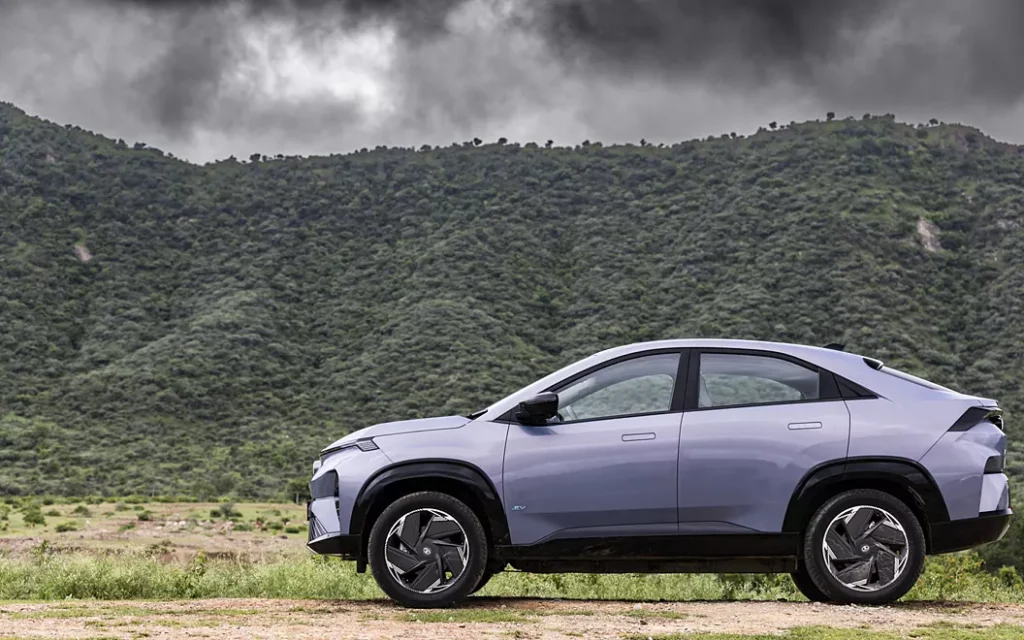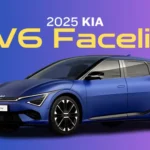Tabble of content
The Tata Curvv is an upcoming electric vehicle (EV) from Tata Motors, expected to hit the market in 2024. It’s designed as a stylish SUV coupe, positioned between the Tata Nexon EV and the Tata Harrier EV. The Curvv is built on Tata’s new Generation 2 EV architecture, which is flexible enough to accommodate both electric and internal combustion engine (ICE) powertrains.
Technology: The Curvv is expected to come equipped with Tata’s latest infotainment system, advanced driver-assistance systems (ADAS), and possibly a digital instrument cluster. The car will also likely support fast charging.
Reduce Greenhouse Gas Emissions. Reduce Air Pollution and health issues caused by it. Reduce dependence on petroleum. Reduced Noise Pollution.
1. Electric Vehicles
(EVs) and Automotive Industry
Design and Aerodynamics: The “curve” in electric vehicles could refer to the aerodynamic design of a car, which is crucial for reducing drag and increasing efficiency.
Battery Performance Curve: This could involve the analysis of how the performance of an electric vehicle’s battery changes over time, represented as a curve.
Adoption Curve: This refers to the S-curve often seen in the adoption of new technologies, including electric vehicles, showing how quickly they are being adopted by the market.
Torque Curve: In electric vehicles, the torque curve is significant because EVs provide instant torque, which is different from internal combustion engines.
Charging Curve: Refers to how the charging speed of an EV changes as the battery fills up, usually faster at lower battery levels and slower as it nears full capacity.
Tata Curvv
2. Finance and Economics
Enterprise Value (EV) Curve: This curve could represent the changes in the enterprise value of a company over time, typically in a graphical format.
Adoption and Market Penetration Curves: These curves illustrate how quickly the market for electric vehicles is growing and at what pace companies and consumers are adopting this technology.
Tata Curvv
3. Photography
Exposure Value (EV) Curves: In photography, EV refers to the exposure value, which is a measure of the combination of a camera’s shutter speed and aperture to achieve a certain exposure level. The “curve” might relate to adjustments made to the exposure in photo editing software to achieve desired brightness and contrast.
Tone Curve Adjustments: In post-processing, adjusting the tone curve can change the exposure of an image, which indirectly influences the exposure value.
Tata Curvv
4. Data Analysis and Machine Learning
ROC Curve (Receiver Operating Characteristic) and EV: While not directly related, in machine learning, curves like the ROC curve are used to evaluate the performance of models. If applied to electric vehicles, this might refer to evaluating prediction models for EV performance, adoption, or other metrics.
Tata Curvv
5. Technology Adoption and Innovation
Technology S-Curve: Often used to describe the adoption and maturity of technologies, including electric vehicles, showing how they start slow, gain momentum, and eventually mature.
Learning Curve: The learning curve for manufacturing or adopting electric vehicles, representing how costs decrease or efficiency increases as more units are produced or more experience is gained
.Tata Curvv
6. Environmental Science
Emissions Reduction Curve (EV Curve): This could refer to the curve representing reductions in emissions as electric vehicles replace traditional internal combustion engine vehicles.
If you’re referring to a specific topic within these categories or something else entirely, please let me know, and I can dive deeper into that area.
Key Specifications of Tata Curve EV
Charging Time: 7.9 hours (7.2kW, 10-80%)
Battery Capacity: 55 kWh
Maximum Power: 165 bhp
Maximum Torque: 215 Nm
Seating Capacity: 5
Range: 585 km
Boot Space: 500 litres
Body Type: SUV
Ground Clearance (Unladen): 186 mm
Key Features of Tata Curve EV
Power Steering
Anti-lock Braking System (ABS)
Air Conditioner
Driver Airbag
Passenger Airbag
Automatic Climate Control
Alloy Wheels
Multi-function Steering





